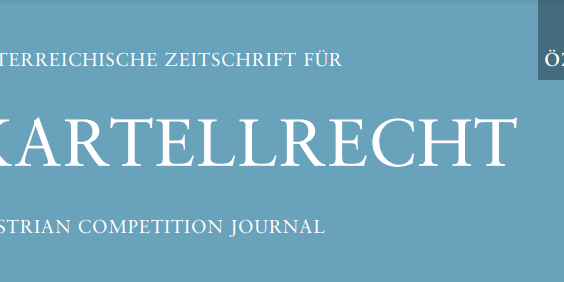In the current issue of the Austrian Competition Journal (Österreichische Zeitschrift für Kartellrecht), Fabian Ziermann takes a look back at the Vienna Competition Law Days 2023, which The Hub hosted at the Vienna University of Economics and Business on 11 and 12 September 2023. He gives an overview of the workshop’s four panels and the ensuing discussions, as well as of Klaudia Majcher’s book launch. The article, in German, is available here.
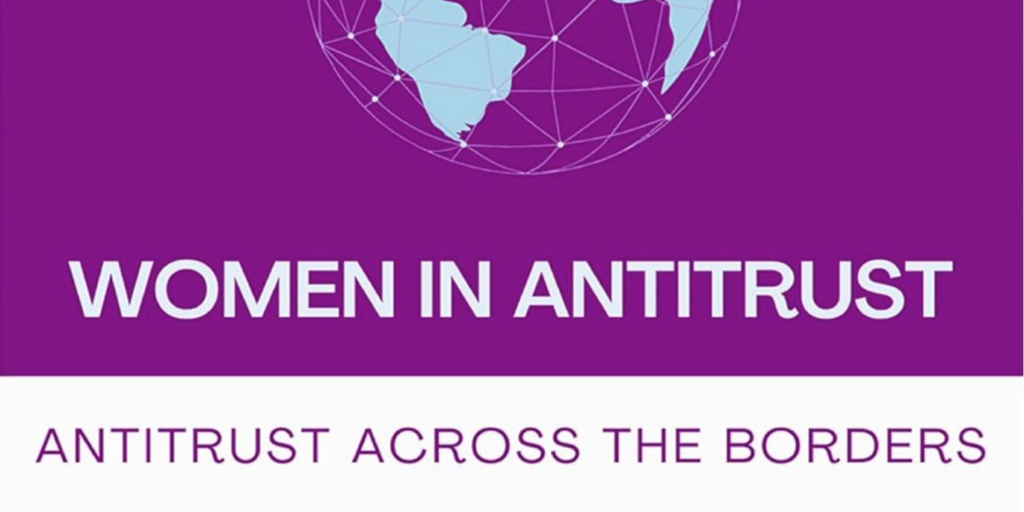
Algorithmic Pricing and Competition Law
In the age of big data, sellers can amass a considerable amount of up-to-date information about their customers that algorithms can then use in order to engage in personalised pricing practices at a large scale. Vicky Robertson’s contribution, just published in the international collaborative book entitled Women in Antitrust: Antitrust Across the Borders, assesses algorithmic pricing from a competition law perspective, addressing several questions: The prospect of an increased personalisation of prices may lead to a gradual disappearance of uniform market prices, which have been at the centre of economics-based competition law for many years. This could call into question many of the general tools of competition analysis. Furthermore, the question poses itself to what extent algorithmic personalised pricing could constitute an anti-competitive practice that can and should be challenged under current competition laws. While some theories of harm, like discrimination and excessive prices, are possible candidates when analysing the applicability of well-known abuses to algorithmic personalised pricing, consumer trust in digitalisation and markets may warrant the elaboration of a theory of harm specifically tailored to algorithmic personalised pricing. In addition, the question poses itself whether the particular harm that algorithmic personalised pricing can inflict should be considered in more tailored regulation. While this contribution’s focus is on EU competition law, similar principles can guide the discussion in other jurisdictions. The contribution can be read in open access here.
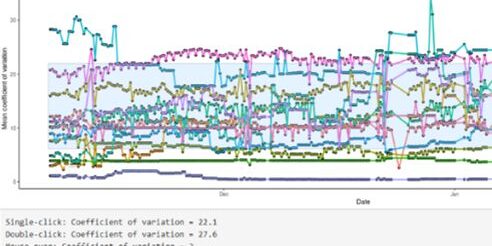
Computational Antitrust Tools to Detect RPM
Computational antitrust tools can help competition authorities in the detection of antitrust infringements. However, these tools require the availability of suitable data sets in order to produce reliable results. In their proof-of-concept study carried out within the realm of the DataComp project, Jan Amthauer, Jürgen Fleiß, Franziska Guggi and Vicky Robertson focus on the area of resale price maintenance. By applying web scraping to price data for washing machines in Austria from a publicly accessible price comparison website, they compiled a comprehensive data set for a period of nearly three months. Visualised with the help of interactive dashboards, this data could then be analysed using various benchmarks in order to determine whether individual washing machine manufacturers and their retailers may be engaging in resale price maintenance. They conclude that the availability of data is a strong driver for research into and the application of computational antitrust tools. If market data were publicly accessible and provided in a more structured format, researchers and competition enforcers could develop ever-more refined computational antitrust applications that would, ultimately, safeguard competition in markets. The paper was just published in the Computer Law & Security Review and is available in open access here.
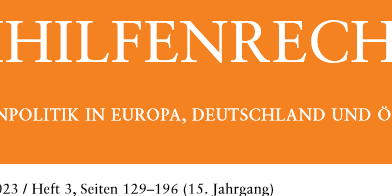
State Aid and Covid 19
Petar Petrov's article on state aid and COVID-19 in the air transport sector (in German) was published in the Zeitschrift für Beihilferecht (BRZ). The article focuses on the impact of COVID-19 on air carriers and on the latest developments in the field of state aid in this sector. It can be accessed here.

Coherence between Data Protection and Competition Law
In digital markets, data protection and competition law affect each other in diverse and intricate ways. Their entanglement has triggered a global debate on how these two areas of law should interact to effectively address new harms and ensure that the digital economy flourishes. In her new book ‘Coherence between Data Protection and Competition Law in Digital Markets’ (OUP 2023), Klaudia Majcher offers a blueprint for bridging the disconnect between data protection and competition law in digital markets. The ideas that Klaudia puts forward for a more synergetic integration of data protection and competition law are anchored in the concept of 'sectional coherence'. This new coherence-centred paradigm reimagines the interpretation and enforcement of data protection and competition law as mutually cognizant and reciprocal, allowing readers to explore, in an innovative way, the interface between these legal fields and identify positive interactions, instead of merely addressing inconsistencies and tensions. The book can be obtained here.
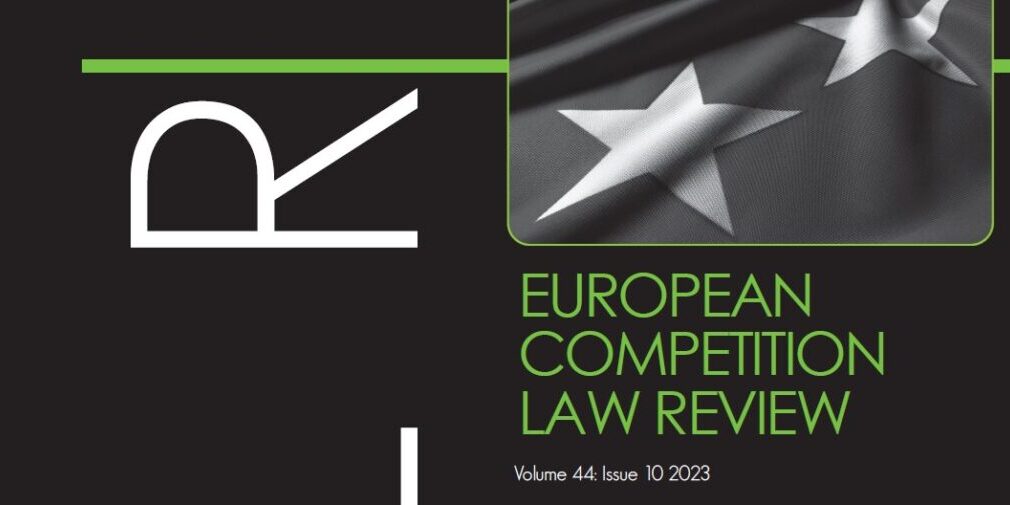
The Future of Digital Mergers Post-DMA
The Digital Markets Act (DMA) wants to ensure contestable and fair digital markets. In addition to its principal obligations, the DMA requires digital gatekeepers to inform the European Commission of any prospective merger (Article 14 DMA). Together with the Dutch clause contained in the EU Merger Regulation (Article 22 EUMR), this obligation will impact the future of digital merger control as the Commission will forward gatekeepers’ merger information to national competition authorities, which can then make use of the referral mechanism under the Dutch clause to enable the Commission to investigate the digital merger.
Vicky Robertson’s article on the issue was just published in the European Competition Law Review, and is freely available here with kind permission of the publisher:
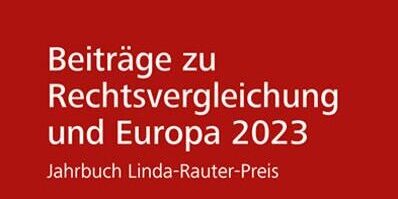
Abuse of Dominance in the Funeral Industry
Franziska Guggi’s work on abuse of dominance in the funeral industry, which she previously presented at the ASCOLA conference in Porto in 2022, was just published. It analyses abuse of dominance in the funeral industry against the background of the essential facilities doctrine. In 2022, Franziska was awarded the Linda-Rauter-Prize by the Faculty of Law of the University of Graz for this work, which is based on her Master thesis. The prize goes to the most outstanding theses in the areas of comparative law, European law, and international law. The contribution is available here: https://shop.manz.at/shop/products/9783214253004.
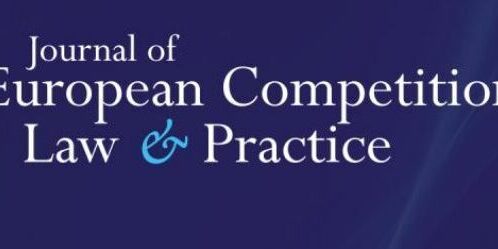
How to Analyse the Microsoft/Activision Merger
Fabian Ziermann’s article on Microsoft’s pending acquisition of Activision Blizzard was just published in the Journal of European Competition Law & Practice as part of the third Rubén Perea Award. In his article, Fabian addresses questions regarding the delineation of video game genre markets and potential harms to innovation in game genres, game ecosystems, and metaverse development. These issues may have been overlooked by the Competition & Markets Authority and the European Commission in their respective decisions to prohibit and approve the acquisition. Fabian argues that this neglect could result in a false positive, three times the acquisition value of Facebook/WhatsApp. The article can be accessed here.

Anti-Competitive Rebates
In the Research Handbook on Abuse of Dominance and Monopolization, published by Edward Elgar in April 2023, Vicky Robertson contributed a chapter on rebates, detailing the antitrust rules applicable to loyalty or fidelity rebate schemes under EU competition and US antitrust law. The chapter finds that antitrust liability for a dominant company will more readily be established in the EU, where the applicability of economics-based tests is still being navigated. In the US, rebates by a monopoly player will usually be found to be anti-competitive where they constitute predatory pricing, although they might also run into antitrust liability where they constitute exclusive dealing arrangements. This divergence can be explained by the different ideological underpinnings in the two jurisdictions. Overall, however, the (case) law on loyalty rebates is still in a state of flux in both jurisdictions. In recent years, both jurisdictions have gradually moved to a little more convergence in their treatment of exclusivity rebates. At this point, however, both the US Supreme Court and the European Court of Justice will need to weigh in on the future of the antitrust assessment of loyalty-inducing rebates.
The Handbook is edited by Pınar Akman, Or Brook (both University of Leeds) and Konstantinos Stylianou (University of Glasgow). It can be found here.
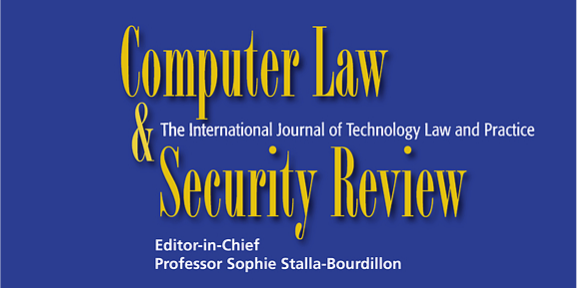
Computational Antitrust: The Status Quo
Cartels and other anti-competitive behaviour by companies have a tremendously negative impact on the economy and, ultimately, on consumers. To detect such anti-competitive behaviour, competition authorities need reliable tools. Recently, new data-driven approaches have started to emerge in the area of computational antitrust that can complement already established tools, such as leniency programs. In this systematic review of case studies, Jan Amthauer, Jürgen Fleiß, Franziska Guggi and Vicky Robertson show how data-driven approaches can be used to detect real-world antitrust violations. Relying on statistical analysis or machine learning, ever more sophisticated methods have been developed and applied to real-world scenarios to identify whether an antitrust infringement has taken place. The review suggests that the approaches already applied in case studies have become more complex and more sophisticated over time, and may also be transferrable to further types of cases. While computational tools may not yet be ready to take over antitrust enforcement, they are ready to be employed more fully.
This is the first paper of the DataComp project, published in volume 49 of the Computer Law & Security Review. It is available in open access here: https://www.sciencedirect.com/science/article/pii/S0267364923000171
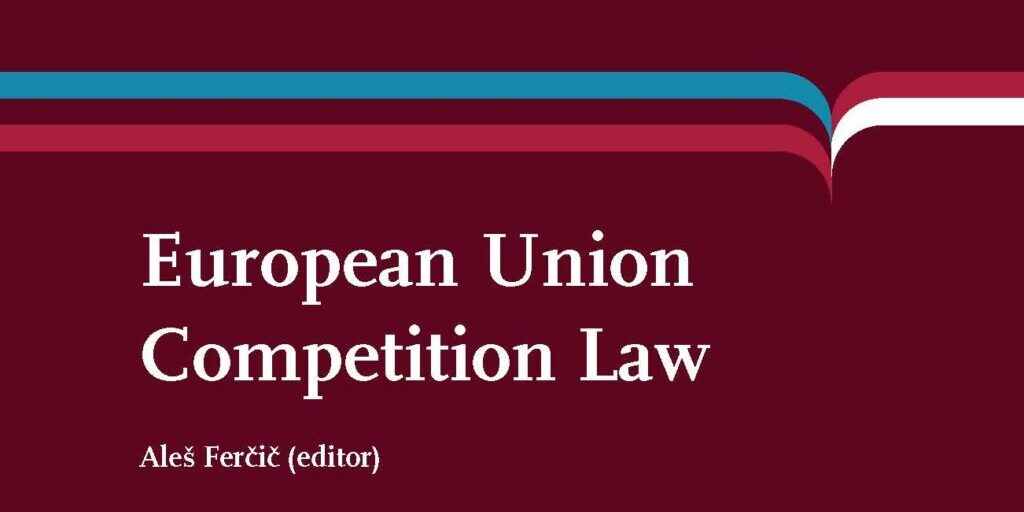
New Textbook on EU Competition Law
Edited by Aleš Ferčič of the University of Maribor, a new textbook on European Union Competition Law was just published by Europa Law Publishing. This comprehensive textbook covering all major aspects of this intriguing part of Union law. It was prepared by a group of distinguished specialists from European universities, including Nataša Samec Berghaus, Stefan Krenn, Pieter Van Cleynenbreugel, José Caramelo Gomes, Martina Repas and Matjaž Tratnik. Vicky Robertson contributed a chapter on market definition. The book covers the various pillars of EU competition law that prevent unlawful restrictions of competition within the internal market. The focus is on anti-competitive agreements, abuses of a dominant position, mergers and state aid measures. Both substantive and procedural issues are covered, including not only public but also private enforcement. In addition, introductory chapters allow readers to immerse themselves in general concepts of EU competition law.
Obtain your copy here: https://www.europalawpublishing.com/101-69_European-Union-Competition-Law
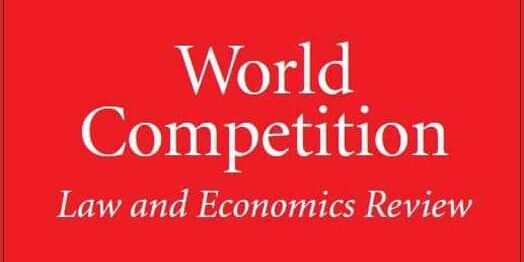
Book Review
In the latest issue of World Competition, Klaudia Majcher published a review of the book ‘How Big Barons Smash Innovation: And How to Strike Back’ co-authored by Ariel Ezrachi and Maurice E. Stucke. This timely book brings into the spotlight how toxic innovations flourish in the digital economy and what should be done to enable the emergence of valuable innovations, particularly from an antitrust perspective. Klaudia’s review is based on her comments provided at the launch of Ezrachi’s and Stucke’s book that took place during the Vienna Competition Law Days in September 2022.
